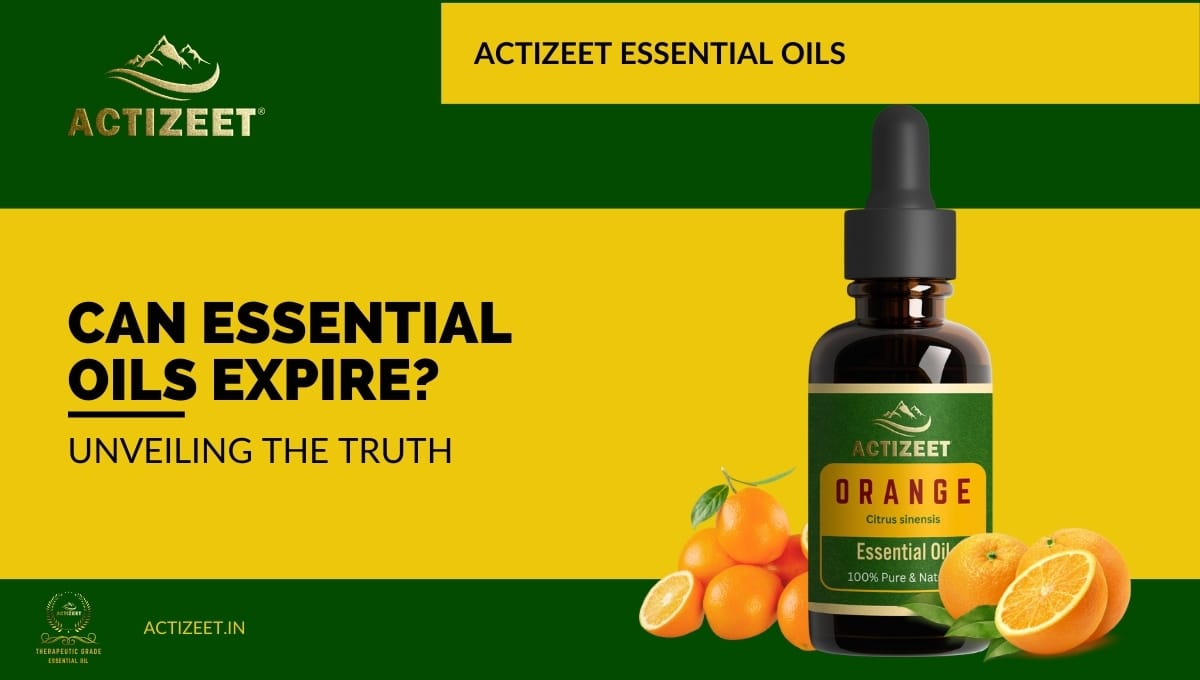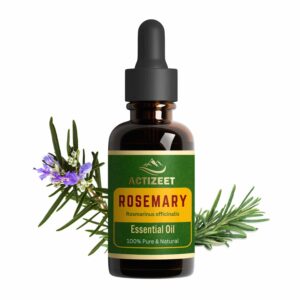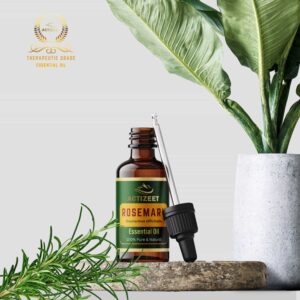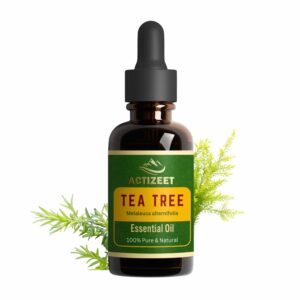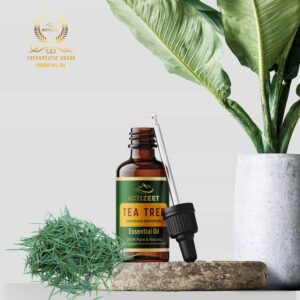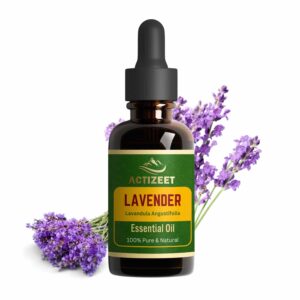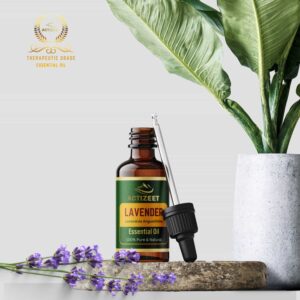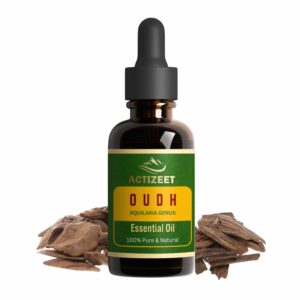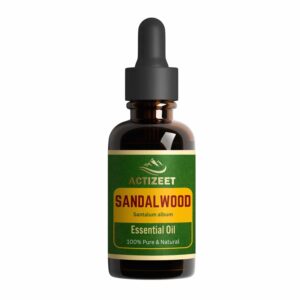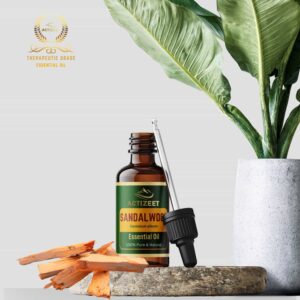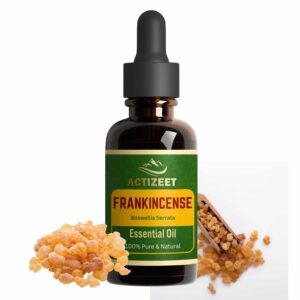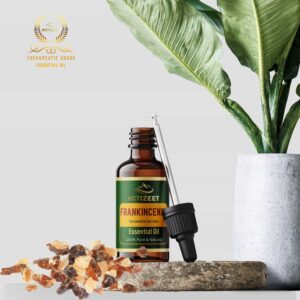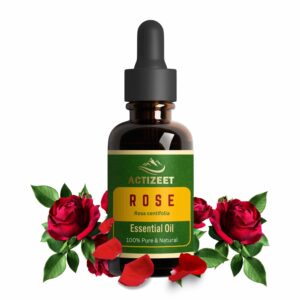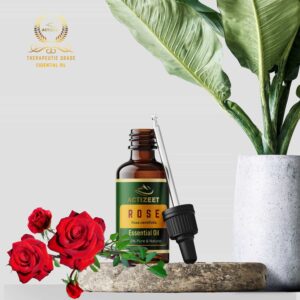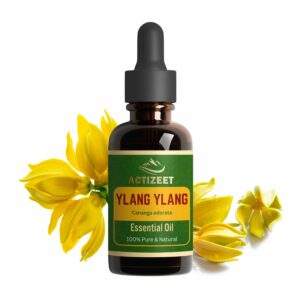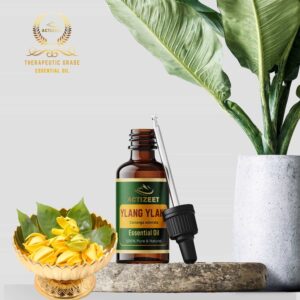Picture this: you’re strolling through a fragrant field of lavender, the gentle breeze carrying its soothing scent to your nose. Or perhaps you’re savouring the aroma of freshly squeezed citrus fruits, their zesty essence awakening your senses. These captivating scents have the power to transport us to another place and time, evoking emotions and memories with just a whiff.
Welcome to the enchanting world of essential oils! Essential oils have gained significant popularity in recent years for their wide range of therapeutic and aromatic benefits.
Derived from natural plant sources through meticulous extraction methods, these concentrated liquids capture the true essence and fragrance of various plants, flowers, fruits, and herbs. From lavender and tea tree oil to peppermint and eucalyptus, there seems to be an essential oil available for every ailment or need.
Table of Contents
ToggleThe Burning Question: Can Essential Oils Expire?
Now comes the burning question that has left many essential oil enthusiasts pondering their collection’s longevity: can these delightful elixirs ever expire? It’s a valid concern for those who’ve invested time and money into building an assortment of aromatic treasures. Well, fear not!
Today we embark on a quest to uncover the truth behind this intriguing query. While essential oils might seem everlasting due to their potent nature and seemingly indestructible aromas, it would be wise not to assume they possess immortality.
Like any other natural product or substance with a finite shelf life, essential oils, too, can experience changes over time that may affect both their fragrance and therapeutic properties. But before we dive deeper into this captivating topic, let’s first understand what essential oils truly are and why they hold such allure in today’s wellness-oriented world.
Understanding Essential Oils
Definition and extraction process of essential oils
Essential oils, my friend, are concentrated essences derived from various plants and botanicals. They’re like the magical life force of nature captured in a tiny bottle. The extraction process is quite fascinating.
Allow me to enlighten you! There are several methods used to extract these potent oils, but the most common ones are steam distillation and cold-pressing.
During steam distillation, steam is passed through the plant material, causing it to release its aromatic compounds. The steam containing these aromatic molecules is then condensed into a liquid form, separating the essential oil from water.
On the other hand, cold pressing is primarily used for extracting citrus oils. This method involves mechanically pressing or grating the rinds of fruits like lemons or oranges to release their precious oils.
The importance of purity and quality in essential oils
When it comes to essential oils, my dear reader, quality is paramount! You see, not all essential oils are created equal.
There’s a whole world out there filled with adulterated or synthetic alternatives that claim to be pure but lack the true essence of nature’s goodness. Purity ensures that you’re getting all those incredible therapeutic benefits without any unwanted additives or dilutions.
High-quality essential oils maintain their chemical composition intact and possess remarkable aromas that can transport you straight into an enchanted forest or fragrant garden! To ensure purity and quality when purchasing your precious bottles of liquid gold, look for reputable brands that provide transparency regarding their sourcing methods and testing procedures.
Always opt for 100% pure essential oils derived from plants grown organically without any pesticides or chemicals lurking around. Remember, my friend: investing in high-quality essential oils guarantees an experience that will leave you feeling rejuvenated and captivated by nature’s aromas.
Shelf Life of Essential Oils
Factors Affecting the Shelf Life
When it comes to the shelf life of essential oils, there are a few key factors that can greatly impact their longevity. One crucial factor is the chemical composition of the oil itself.
Some essential oils naturally contain more volatile compounds, which tend to evaporate faster, leading to a shorter shelf life. On the other hand, oils with a more stable chemical makeup can last longer.
Storage conditions also play a significant role in determining how long an essential oil will remain potent. Exposure to light, heat, and air can accelerate the degradation process and reduce its shelf life.
It is important to store your essential oils in dark glass bottles that provide protection from light and ensure they are tightly sealed when not in use. Additionally, extreme temperatures should be avoided as they can cause changes in chemical properties and compromise the quality of the oil.
General Shelf Life Ranges for Different Types of Essential Oils
The shelf life of essential oils varies depending on their specific characteristics and chemical compositions. While it’s challenging to provide exact expiration dates for each oil due to variations in quality and storage conditions, here are some general guidelines:
- Citrus Essential Oils: These bright and refreshing oils derived from citrus fruits like lemon or orange have a relatively short shelf life compared to others due to their high volatility. On average, they can last anywhere from 1-2 years if stored properly.
- Floral Essential Oils: Extracted from delicate flowers such as rose or lavender, floral essential oils tend to be more stable than citrus ones. With proper storage, these precious scents can maintain their potency for up to 2–4 years.
- Woody Essential Oils: Derived from trees like cedarwood or sandalwood, these grounding and earthy aromas have excellent longevity. They can generally last anywhere from 4-6 years or even longer if stored in optimal conditions.
Remember, these are just general guidelines, and individual oils may have variations within these ranges. It’s always best to trust your senses and evaluate the quality of an essential oil before use, especially if you’ve had it for an extended period of time.
Signs of Expired Essential Oils
Aroma: The Nose Knows
Ah, the aroma of essential oils. It’s one of the reasons we love them so much! But did you know that the scent can reveal if your oils have gone past their prime?
When essential oils expire, their once vibrant and distinct aromas start to fade or change altogether. For example, that invigorating citrus oil you adore might lose its zesty punch and smell more like a stale lemonade stand on a scorching summer day.
And that calming lavender oil that is used to transport you to fields of purple bliss? Well, it might turn into something resembling dried-out potpourri from your grandma’s dusty linen closet.
Not only can expired essential oils lose their original fragrance, but they can also develop an unpleasant odour. Instead of smelling like nature’s essence captured in a tiny bottle, they may emit a putrid or rancid smell.
It’s as if they’ve turned from heavenly scents into something resembling old gym socks left in a locker for far too long. Trust your nose; it knows when those beloved essential oils have overstayed their welcome.
Color and Consistency: A Visual Tale
Colors are not just for rainbows; they can also tell us about the state of our essential oils. Pay attention to any changes in hue or clarity, as these are clear signs that expiration might be lurking around the corner.
Have you noticed your once-vibrant orange oil turning dull and murky? Or perhaps your clear eucalyptus oil has transformed into a cloudy concoction reminiscent of swamp water?
Expired essential oils may also experience changes in consistency and texture. Oils that were once fluid-like might become thicker or develop sediment at the bottom of the bottle.
You might find yourself struggling to get those drops out because what was once a free-flowing oil now resembles molasses in January. Don’t despair; it’s just nature’s way of telling you it’s time to bid farewell to those expired oils and make room for fresh ones.
Loss of Therapeutic Properties or Efficacy: The Power Wanes
When essential oils expire, so do their potency and effectiveness. These little bottles of nature’s goodness contain powerful therapeutic properties that we rely on for various purposes, whether it be relaxation, immune support, or skin care.
But as time goes by, these properties can diminish, leaving you with a product that is far less effective than intended. The chemical composition of essential oils can change over time due to oxidation and other factors, leading to a decrease in their therapeutic benefits.
For example, an expired tea tree oil might no longer possess its renowned antimicrobial properties, which could impact its ability to fight off those pesky skin blemishes. Similarly, a once invigorating peppermint oil might lose its refreshing kick and fail to provide that much-needed energy boost.
Remember, the potency of essential oils is what sets them apart from synthetic alternatives. So when expiration starts knocking at the door, it’s time to bid farewell and seek out fresh oils that still have the power to work their magic on your mind and body.
Extending the Shelf Life
Proper storage techniques (e.g., dark glass bottles, cool temperature)
When it comes to preserving the potency and shelf life of your precious essential oils, proper storage is key. It’s like giving them a cosy little home where they can thrive for longer. One vital aspect of proper storage is using dark glass bottles.
You may have noticed those cute amber or cobalt blue bottles that essential oils often come in – they’re not just for aesthetics! These dark-coloured bottles are designed to protect the oils from harmful UV rays that can degrade their delicate chemical composition over time.
So, be sure to transfer your essential oils into these protective containers if they don’t already come in them. Another important factor in extending the shelf life of essential oils is keeping them at a cool temperature.
Heat is not a friend to these precious elixirs. Exposing them to high temperatures can accelerate their deterioration and evaporation, reducing their effectiveness.
Therefore, it’s best to store your essential oils in a cool area away from direct sunlight or heat sources like radiators or stoves. A cupboard or drawer in a moderate-temperature room will make an ideal sanctuary for your collection.
Tips to prevent contamination and oxidation
Contamination and oxidation are two common enemies that can shorten the lifespan of your cherished essential oils faster than you’d want. To prevent contamination, always ensure that you use clean and dry droppers or pipettes when dispensing the oil from the bottle into another container or onto your skin.
Contaminants like water or other substances can introduce unwanted elements that could compromise the quality of your oil. Oxidation occurs when essential oils are exposed to air for an extended period.
This process alters their chemical structure, diminishing their therapeutic properties and inviting potential skin irritations when applied topically. To combat oxidation effectively, make sure to tightly seal the bottle after each use, minimizing the amount of air that comes into contact with the oil.
Additionally, using roll-on bottles or orifice reducers can further reduce oxygen exposure and prolong shelf life. So, remember to keep those caps closed tight and give your oils some extra love by shielding them from unwanted oxidation!
Exceptions to the Rule: Stability of Some Essential Oils
While it’s true that essential oils can expire, there are a few remarkable exceptions to this rule. Patchouli and sandalwood essential oils, for instance, possess unique characteristics that contribute to their extended stability.
These oils are known for their rich, woody aromas and have been valued for centuries for their therapeutic benefits. Patchouli oil, derived from the leaves of the patchouli plant, has a robust fragrance that only gets better with time.
Its high concentration of sesquiterpenes gives it lasting power, making it less prone to degradation. Similarly, sandalwood oil from the heartwood of sandalwood trees boasts exceptional stability due to its rich composition of sesquiterpenes and santalols.
The Dangers of Using Expired Essential Oils
Potential risks to health and skin when using expired oils:
Using expired essential oils can have adverse effects on your health and skin. Over time, essential oils may undergo chemical changes leading to the formation of toxic compounds or allergens.
Applying or inhaling such expired oils can cause skin irritations, allergic reactions, or even respiratory problems.
The importance of adhering to expiration dates for safety reasons:
Adhering to expiration dates is crucial for ensuring your safety when using essential oils.
The expiration dates indicate the point at which an oil’s quality begins deteriorating significantly and potential risks arise. By using expired essential oils without caution or awareness, you risk compromising your well-being and undermining the therapeutic properties that make these natural remedies so valuable.
Disposing of Expired Essential Oils
Environmentally friendly disposal methods:
When it comes time to bid farewell to your expired essential oils, it’s important to dispose of them responsibly. Avoid pouring them down the drain or throwing them in the regular trash, as this can harm the environment.
Instead, consider recycling the dark glass bottles they came in or bringing them to a local hazardous waste facility that accepts essential oils for proper disposal. Some communities and organizations also organize special collection events for hazardous household waste.
Safety precautions when disposing of expired oils:
When handling expired essential oils, it’s crucial to take safety precautions. Wear gloves to protect your skin and avoid contact with your eyes or mucous membranes.
Ensure proper ventilation if you’re dealing with a large quantity of expired oils. Additionally, keep children and pets away from the disposal area to prevent accidental ingestion or exposure.
Myth Debunked: Do Essential Oils Last Forever?
Clarifying misconceptions around eternal shelf life claims:
There is a common misconception that essential oils last forever due to their concentration and potency. However, this belief is inaccurate.
While some essential oils have longer shelf lives than others, all essential oils will eventually degrade over time due to factors such as oxidation and chemical changes.
Scientific evidence supporting the expiration concept:
Numerous scientific studies have emphasized the concept of essential oil expiration.
These studies have shown how certain chemical compounds within essential oils break down over time, leading to changes in aroma, colour, and therapeutic properties. The degradation process is influenced by environmental factors such as heat, light exposure, air exposure, and improper storage conditions.
Conclusion
While there are exceptions like patchouli and sandalwood oil that exhibit extended stability, most essential oils do have an expiration date that should be respected for safety reasons. Using expired oils can lead to potential risks for your health and skin. Therefore, it is crucial to dispose of expired oils responsibly, following environmentally friendly methods and taking appropriate safety precautions.
Remember that essential oils are valuable natural remedies, and prioritizing freshness ensures you can maximize their therapeutic benefits. So, stay mindful of expiration dates and enjoy the aromatic wonders of these remarkable gifts from nature!
RECOMANDED PRODUCTS
-
Rated 4.72 out of 5
₹1,500.00Original price was: ₹1,500.00.₹1,200.00Current price is: ₹1,200.00. Incl. GST ADD TO CARTBuy Now -
Rated 4.88 out of 5
₹1,500.00Original price was: ₹1,500.00.₹1,200.00Current price is: ₹1,200.00. Incl. GST ADD TO CARTBuy Now -
Rated 4.74 out of 5
₹1,500.00Original price was: ₹1,500.00.₹1,200.00Current price is: ₹1,200.00. Incl. GST ADD TO CARTBuy Now -
Rated 4.63 out of 5
₹1,900.00Original price was: ₹1,900.00.₹1,450.00Current price is: ₹1,450.00. Incl. GST ADD TO CARTBuy Now -
Rated 4.72 out of 5
₹2,500.00Original price was: ₹2,500.00.₹1,950.00Current price is: ₹1,950.00. Incl. GST ADD TO CARTBuy Now -
Rated 4.88 out of 5
₹1,500.00Original price was: ₹1,500.00.₹1,200.00Current price is: ₹1,200.00. Incl. GST ADD TO CARTBuy Now -
Rated 4.88 out of 5
₹1,500.00Original price was: ₹1,500.00.₹1,200.00Current price is: ₹1,200.00. Incl. GST ADD TO CARTBuy Now -
Rated 4.80 out of 5
₹1,500.00Original price was: ₹1,500.00.₹1,200.00Current price is: ₹1,200.00. Incl. GST ADD TO CARTBuy Now
Related posts:
- Unveiling the Mystery: When Does Shilajit Expire? | Expert Insights
- Can Essential Oil be Consumed? Unveiling the Truth
- Unlocking the Skin Benefits: Essential Oils Explained
- Nourish Your Hair: Benefits of Using Essential Oils
- Unveiling the Powerful Turmeric Essential Oil Benefits
- Unveiling the Truth: Is Shilajit Natural? Find Out Now!
- The Miracle Elixir: Unveiling the Awe-Inspiring Benefits of Aloe Vera Essential Oil
- Wisteria Essential Oil: Unveiling Its Profound Benefits

